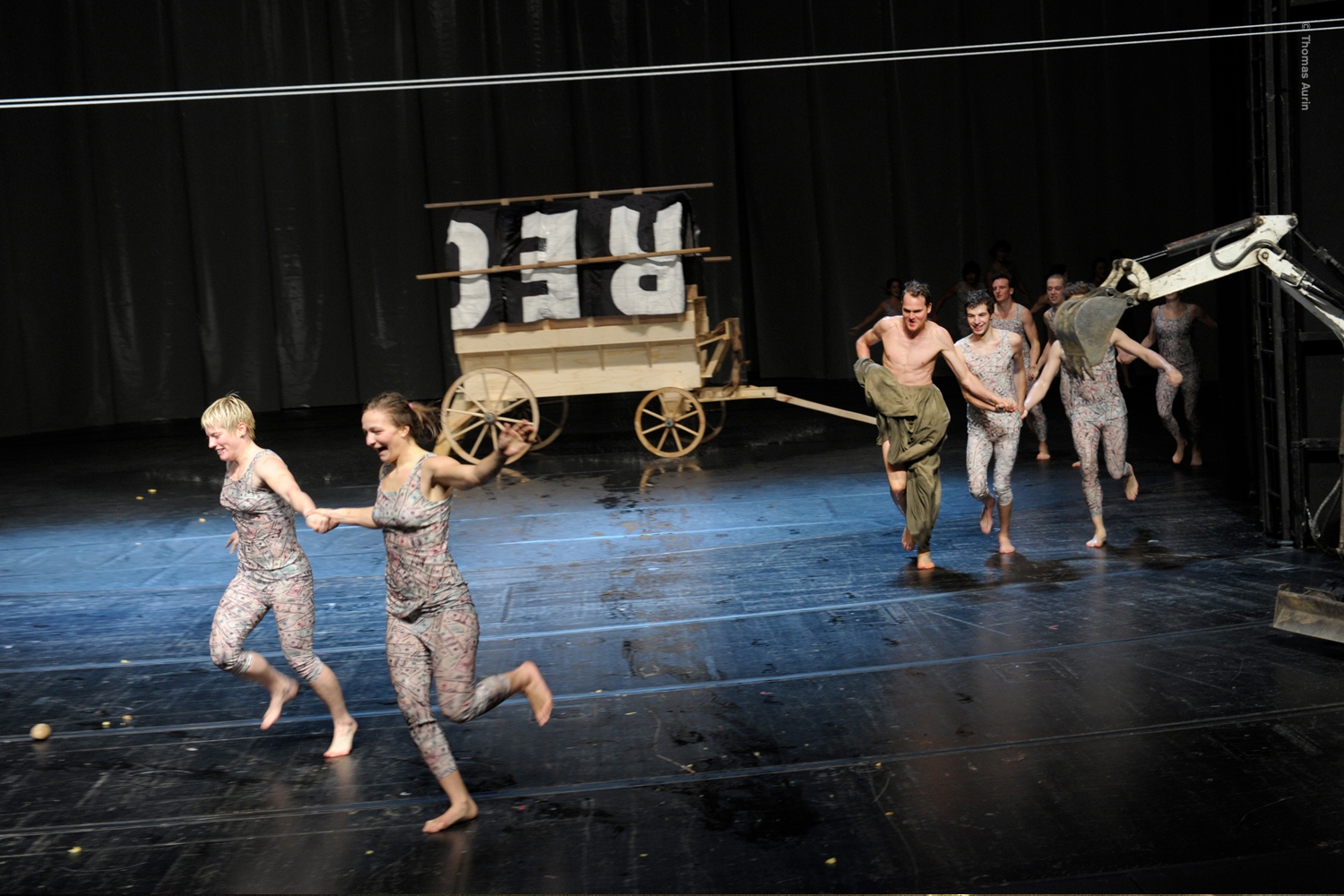

Berlin, 20 June 2016
To all parliamentary parties in the Berlin House of Representatives
Bündnis 90/Die Grünen – parliamentary group
CDU – parliamentary group
Die Linke. - parliamentary group
Piraten – parliamentary group
SPD – parliamentary group
State Commissioner for Culture and Media, Monika Grütters
Madam Minister, Ladies and Gentlemen,
This is an excerpt from the Berlin Budgetary Plan 2014/15:
“The Volksbühne is a resident company and repertory theatre run in the tradition of Erwin Piscator and Benno Besson using the forms and objectives of avant garde art combined with a theatre in the tradition of social commitment and responsibility. The theatre repertory section of the Volksbühne also extends to dance and music productions.”
We are deeply concerned to see the artistic direction at the Volksbühne change in the coming year. The artistic and technical staff at the Volksbühne am Rosa-Luxemburg-Platz are part of a very productive centre of artistic challenges. We are not afraid of the new.
The general meeting with the designated artistic director on 28 April 2016 indicated, however, that experimenting with new forms of theatre and art will soon be a thing of the past. Chris Dercon and his programme director Marietta Piekenbrock have failed to present a convincing concept for developing our artistic and structural achievements further.
On the contrary, we were presented with plans to implement 'novel' multidisciplinary practices ranging from dance, music, media and performance art to digital art and film events in the programme of the Volksbühne, which have, in fact, always been integral parts of our artistic concept under Frank Castorf's direction. At the same time, the assembled staff was informed that “the spoken-word theatre segment will not be the main pillar of this playhouse”, hearing truisms such as “the stage language will become more polyglot”. The banality of these announcements has generated the growing concern that a selling off of artistic standards established over the years is underway, and we fear that the powerful theatre branch of our house will be weakened.
State Secretary of Culture, Tim Renner, speaks of a "radical change of direction", but this change implies a break in the history of the Volksbühne, which more than 100 years ago was conceived as a place in the centre of Berlin where working-class theatre could meet avant garde art as part of the German Volksbühnen movement [Volksbühne = the people's stage]. We fear that the locally as well as historically established ties with the city of Berlin, the political orientation of the artists and their art, and the unique theatre aesthetics thus created will be cancelled out.
This change of direction is not a friendly takeover. It is an irreversible turning point and a break with the recent past of the theatre, during which the Volksbühne has successfully defended itself against a rebranding as a venue for dance and festival performances. This change represents a historical levelling and razing of identity. The artistic processing of social conflict is displaced in favour of a globally extended consensus culture with uniform presentation and sales patterns.
What we find missing in the conception of the new management team are all the characteristics that have made this stage so unique for and with us: political intervention from an artistic perspective, a pronounced concept of the social relevance of theatre, and a plan for a repertory and company theatre tapping the full potential of a playhouse with more than 200 permanent employees and its own workshops; a potential allowing for artistic freedom to create and develop unique theatre performances.
In view of these developments, we fear that our competences and skills will no longer be needed. We fear job cuts and the liquidation of major sections of our technical staff. The backbone of a skilled technical staff is exceptionally strong at the Volksbühne; weakening their potential will result in a decrease in the overall potential of the Volksbühne as an artistic venue. If these structural possibilities are under serious threat, they risk being lost for ever - to devastating effects for the entire cultural landscape and the system of state-funded theatres in Germany. Our criticism is addressed to the decision-makers in the field of cultural policy in Berlin: In the name of internationalisation and diversity they are in danger of becoming contributors to the destruction of originality and obstinacy which has gained the Volksbühne an international reputation and worldwide recognition.
We see the future of the Volksbühne threatened! We call on you to respond to our concerns and to ensure that the theatre's function described in the budgetary plan will be safeguarded. The programmatic redirection of the Volksbühne announced by Chris Dercon cannot be allowed to happen at the expense of the liquidation of artistic standards and collaborations that have evolved over time – for these form the proper working basis of the employees here!
We are calling on the House of Representatives and the Senate of Berlin to thoroughly review the concept of the new leadership of the Volksbühne am Rosa-Luxemburg-Platz with regard to the concerns formulated here.
Signatories are the following staff members of the Volksbühne am Rosa-Luxemburg-Platz; Berlin, June 2016: